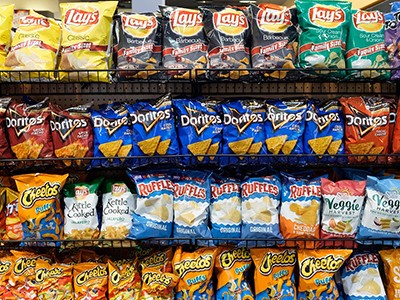Ultra-processed foods make up a large proportion of many people’s diets.Credit: Thom Lang/Getty
Food Fight: From Plunder and Profit to People and Planet Stuart Gillespie Canongate Books (2025)
At the United Nations Food Systems Summit held in Addis Ababa in July, world leaders reaffirmed the importance of food systems in tackling poverty, malnutrition, climate change and biodiversity loss. Yet, their closing pledges — increased collaboration and innovation — felt familiar and incremental for a crisis that many people see as systemic.

Are ultra-processed foods really so unhealthy? What the science says
Stuart Gillespie’s book Food Fight offers a sharp diagnosis: a global system once designed to stave off famine through cheap, calorie-dense foods now fuels obesity, disease, environmental harm and inequality. Drawing on four decades of experience in global nutrition and policy, Gillespie argues that tinkering won’t do. Fixing the system will take nothing less than a revolution.
The statistics that Gillespie presents in this eye-opening book are shocking: poor diet now accounts for one-quarter of all adult deaths worldwide (more than 12 million a year); malnutrition in all its forms affects one in three people; and ultra-processed foods (UPFs), which are highly profitable to corporations, are linked to as many as one in seven premature deaths in some countries. Moreover, food production generates roughly one-quarter of global greenhouse-gas emissions.
Gillespie attributes many of these issues to corporate greed, weak regulation by governments and complicit international organizations. The result is a system that prioritizes profit, with people and the planet paying the price.

Ultra-processed foods — it’s time for an improved definition
The book traces the shaping of modern food systems to colonialism. Agriculture during colonial times was extractive, and geared towards the production of profitable items, including sugar, tea, coffee and cocoa, rather than nourishing local populations. Gillespie argues that this logic of plunder persists in today’s corporate-dominated system, in which a handful of transnational firms — ‘Big Food’, ‘Big Sugar’ and ‘Big Choc’ — control nearly every stage of food production, distribution and consumption. Their pursuit of profit drives the manufacture of ultra-processed products that are designed to be addictive and have a long shelf life and strong appeal, while simultaneously shifting social and environmental costs to the public.
One of the most damning sections of Food Fight deals with the health impacts of this corporate control. Gillespie emphasizes that malnutrition is no longer just about hunger — it’s about the poor quality of diets. The number of people with obesity, diabetes, cardiovascular disease and diet-related cancers is soaring worldwide. At the same time, undernutrition and micronutrient deficiencies persist — the ‘double burden’ of malnutrition.